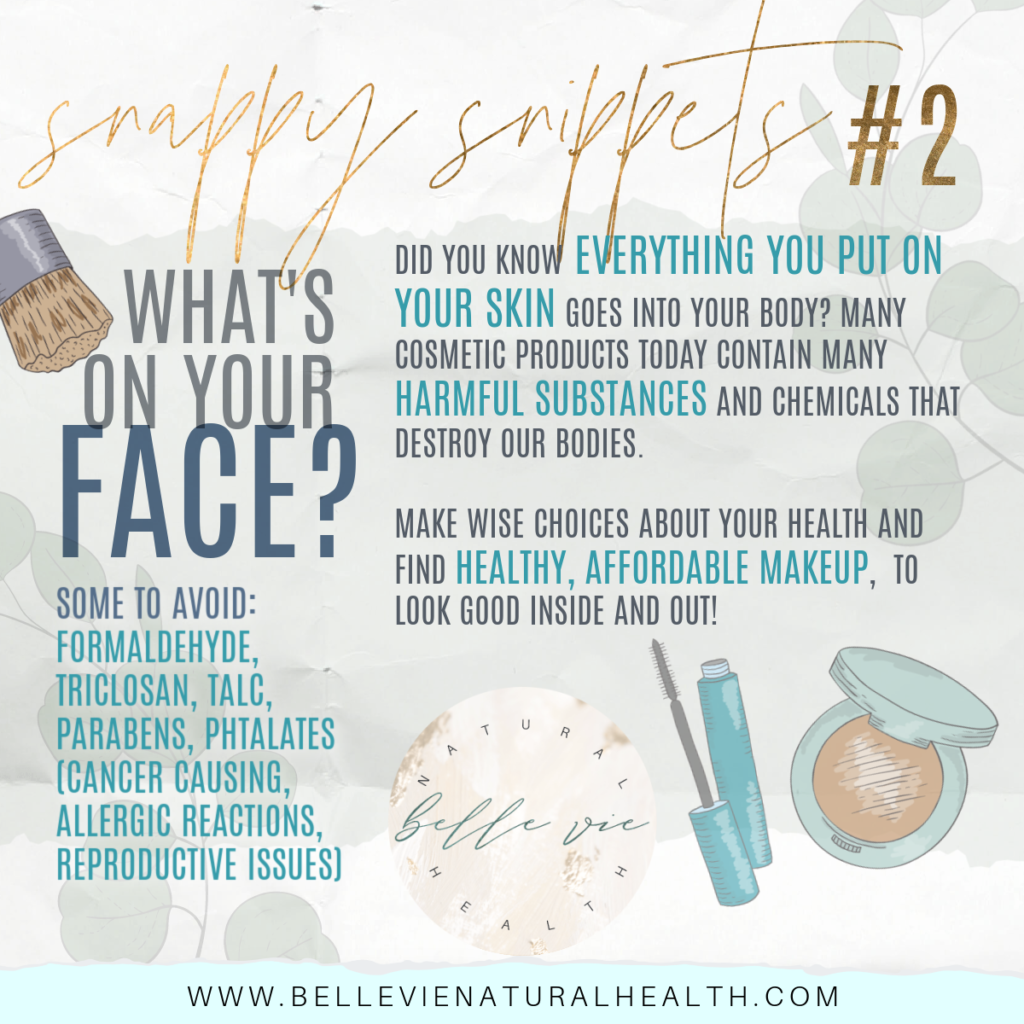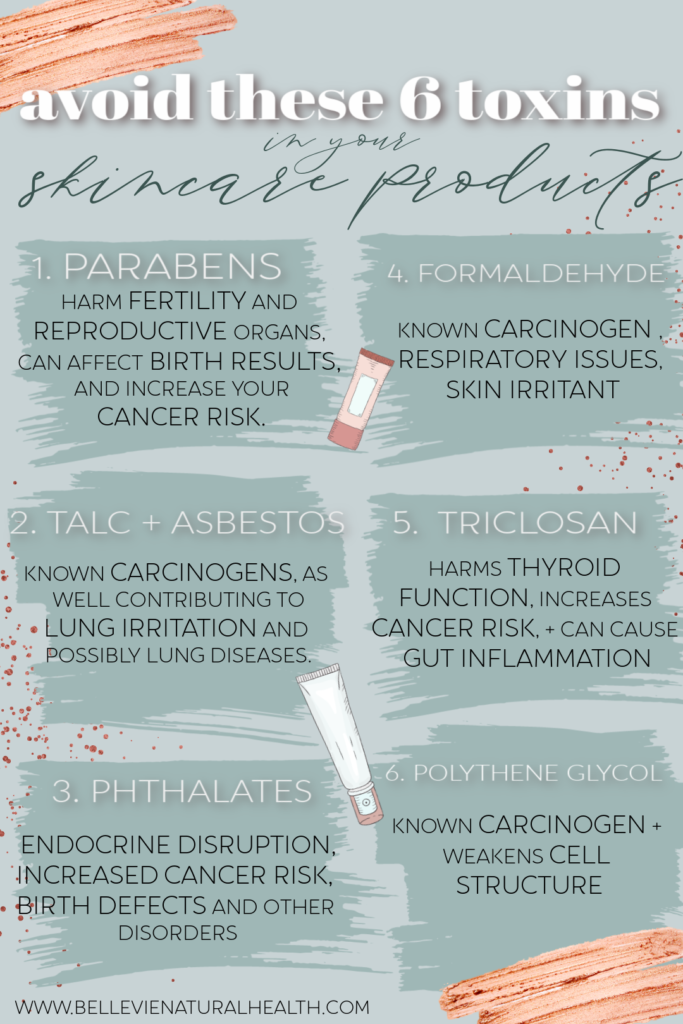With our skin being the largest organ in our body and extremely porous, it is critical to be aware of what you are putting on it, and as a result, putting in your body. According to research, your skin soaks up about 60% of the ingredients that it comes in contact with. For many years, I never realized how many dangerous toxins and chemicals are in skin care products – from face creams, soaps, toners, to makeup. Unbeknownst to many, plenty of serious ingredients are lurking in your makeup bag, and are usually labeled under many different pseudonyms. Here are 6 you should be on the lookout to avoid and why.

1. Parabens
Parabens have been found to disrupt the hormones in your body, harm fertility and reproductive organs, can affect birth results, and increase your cancer risk. Parabens are often found in liquid + powder foundations, BB + CC creams, tinted moisturizer, lipstick, sunscreen, cream + powder blush, body lotion, face creams, sunscreen + more.
2. Talc + Asbestos
Talc is usually added to makeup products to make them more creamy, and to dilute pigments. Both Talc and Asbestos are known carcinogens (meaning they cause-cancer), as well as talc causing lung irritation and possibly lung diseases. Talc is commonly found in makeup powders, foundations, blush, etc;
3. Phthalates
Much like parabens, Phthalates have been linked to endocrine disruption, which affects your hormones, possibly causing cancer, birth defects and other disorders. Phthalates are often found in body lotions, moisturizers, nail polish, deodorants, and soaps.
4. Formaldehyde
Formaldehyde is another known carcinogen (!), and is primarily used as a preservative in cosmetics and skin care products. Formaldehyde, aside from increasing cancer risk, also can greatly contribute to many other health issues and defects.
5. Triclosan
Triclosan is a synthetic antibacterial agent that prevents bacteria from growing on products (makeup, soaps, body washes). Unfortunately, Triclosan can adversely affect your thyroid function which leads to a host of other health issues, can cause gut inflammation, and also can contribute to your cancer risk.
6. Polythene Glycol
Polythene Glycol is commonly used as a thickening agent in cosmetic creams, moisturizers and softeners. And with Polythene Glycol we once again meet a known carcinogen, and weakens your cell structure.
Unlike Europe, which has banned 1,300 chemicals in cosmetics, the United States has only banned 11. Choosing safer cosmetic and skin care products can be time consuming and sometimes costly, but it allows you to make informed decisions concerning your health. Sadly, a product simply being labeled as natural doesn’t mean much today. Be on the lookout for companies that are open about their ingredients, are committed to safety testing, and using high quality ingredients.
The Environmental Working Group’s Skin Deep Database and Inci Decoder are excellent resources to check the product quality you are using to ensure their safety for you and your loved ones.
I will be sharing some great natural and organic skin care companies in the next few weeks!

Share this photo with friends >>






No Comments